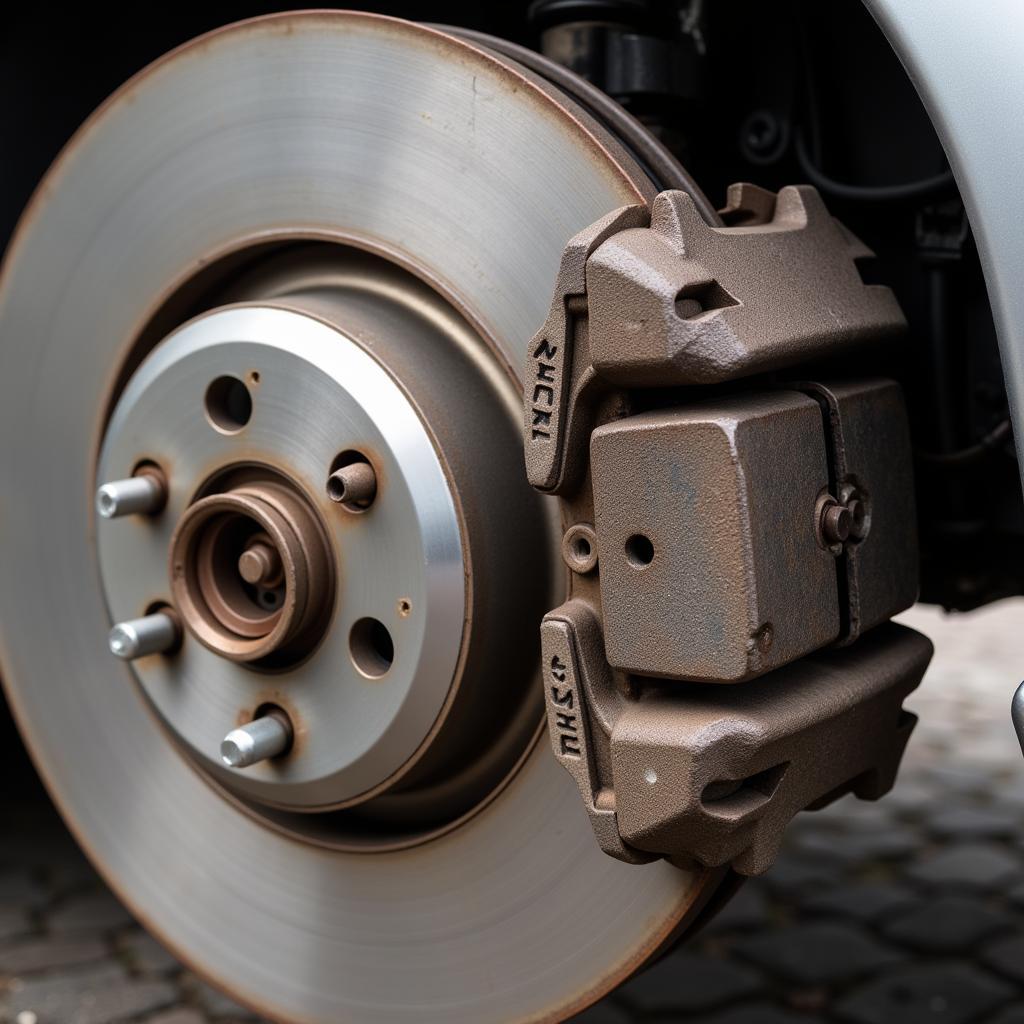Worn-out brake pads are a common problem that can lead to serious consequences if left unchecked. When your brake pads wear down, they can no longer effectively slow your vehicle down. This can lead to a variety of problems, including extended stopping distances, reduced braking performance, and even complete brake failure.
Understanding Brake Pads
Brake pads are essential components of your vehicle’s braking system. They are made of a friction material that presses against the brake rotors or drums when you apply the brakes, creating the force needed to slow your vehicle down. Over time, the friction material on brake pads wears down due to normal wear and tear.
What Happens When Brake Pads Wear Out?
When your brake pads wear out, the following problems can occur:
- Extended stopping distances: Worn-out brake pads have less friction material, which means they can’t generate as much braking force. This can lead to longer stopping distances, increasing the risk of an accident.
- Reduced braking performance: Worn-out brake pads can cause your brakes to feel spongy or less responsive. This can make it difficult to stop your vehicle quickly and safely.
- Brake noise: When brake pads wear down, they can start to make a squealing or grinding noise. This is because the metal backing plates of the pads are rubbing against the rotors or drums.
- Brake vibration: Worn-out brake pads can cause your vehicle to vibrate when you apply the brakes. This is because the uneven wear of the pads can cause the rotors or drums to warp.
- Damaged rotors or drums: If you continue to drive with worn-out brake pads, the metal backing plates can damage the rotors or drums. This can result in costly repairs.
- Complete brake failure: In extreme cases, worn-out brake pads can lead to complete brake failure. This can be a very dangerous situation, as you will no longer be able to stop your vehicle.
Signs of Worn-Out Brake Pads
There are a few signs that can indicate your brake pads are worn out:
- A high-pitched squealing noise: This is usually the first sign that your brake pads are wearing down. The noise is caused by the metal backing plates of the pads rubbing against the rotors or drums.
- A grinding noise: This is a more serious sign that your brake pads are worn out. It means that the metal backing plates are now in contact with the rotors or drums, and the pads are likely very thin.
- A spongy brake pedal: If your brake pedal feels spongy or mushy, it could be a sign that your brake pads are worn out. This is because there is less friction material to press against the rotors or drums.
- Brake warning light on the dashboard: Most vehicles have a brake warning light that will come on if there is a problem with the braking system, including worn-out brake pads.
What to Do If Your Brake Pads Are Worn Out
If you suspect that your brake pads are worn out, it’s important to have them inspected by a qualified mechanic as soon as possible. They can assess the condition of your brake pads and recommend whether they need to be replaced.
“If your brake pads are making noise or you feel a difference in the way your brakes work, it’s important to have them inspected immediately,” says John Smith, a certified mechanic with over 20 years of experience. “Driving with worn-out brake pads is dangerous and can lead to expensive repairs.”
Frequently Asked Questions
Q: How often should brake pads be replaced?
A: Brake pads typically last between 25,000 and 65,000 miles, depending on your driving habits and the type of brake pads you have.
Q: How much does it cost to replace brake pads?
A: The cost of replacing brake pads can vary depending on the make and model of your vehicle, the type of brake pads you choose, and the labor costs in your area.
Q: What happens if I keep driving with worn-out brake pads?
A: If you keep driving with worn-out brake pads, you risk damaging your brake rotors or drums, and you could also experience complete brake failure.
Q: Can I replace brake pads myself?
A: You can replace brake pads yourself, but it’s a fairly complex job that requires some mechanical skills and specialized tools. If you’re not comfortable working on your own vehicle, it’s best to have a mechanic do it for you.
Q: What should I do if my brake warning light comes on?
A: If your brake warning light comes on, it’s important to stop driving immediately and have your vehicle inspected by a mechanic. This could be a sign of a serious problem with your braking system.
Conclusion
Driving with worn-out brake pads is dangerous and can lead to costly repairs. If you notice any of the signs of worn-out brake pads, it’s important to have them inspected by a qualified mechanic as soon as possible. Replacing your brake pads when they are worn out is crucial for your safety and the safety of others on the road.


